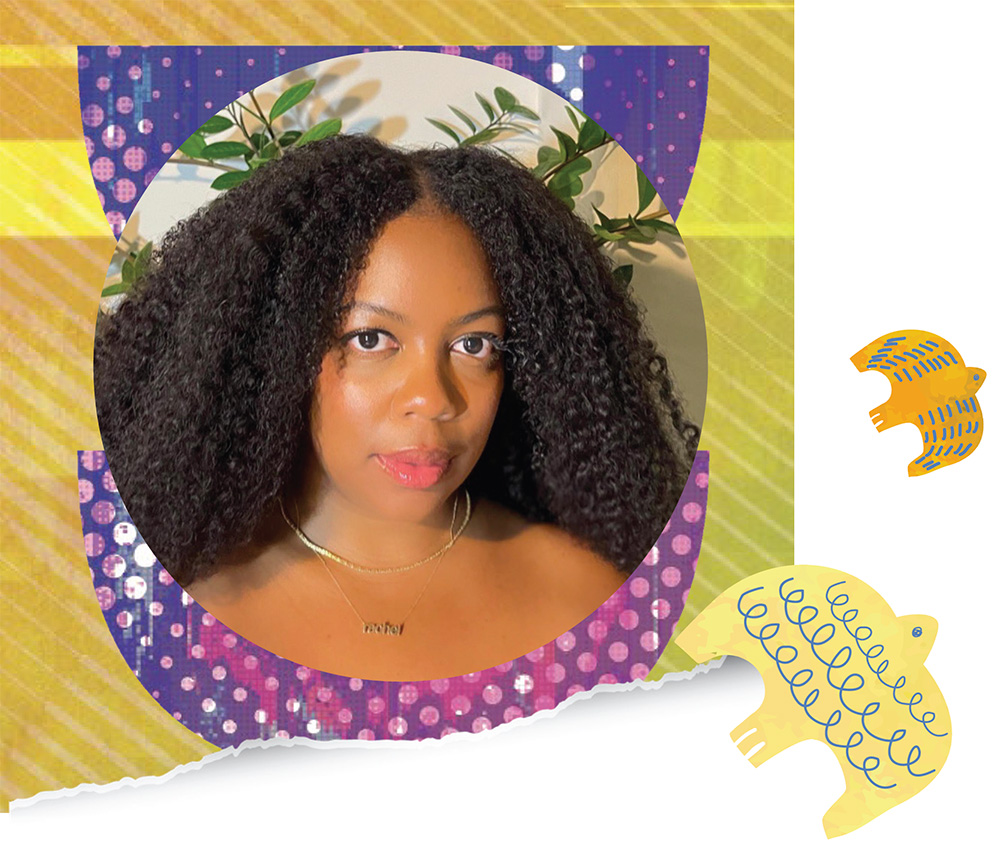Letter from the Guest Editor
![Letter from the Guest Editor]()
Letter from the Guest Editor
![Letter from the Guest Editor]()
Rachel Hislop
Rachel Hislop
The first magazines that I ever owned had the lower right side of their covers torn off, removing the address. By the time they were in my possession, they were earmarked, littered with post-its, and most likely the issue from the month prior. But they were mine.
My mother, in addition to working as a housecleaner, worked as a cleaner in a building rented to one of the world’s largest beauty brands. She would pick those magazines up for me before the marketing team, done with their use, trashed them. I cherished those glossy papers, running my finger over the ridges of the torn corner and imagining the magazine could be addressed to me.
On days when school was out, I would travel through the hidden corridors of this gilded building alongside my mother and her cleaning cart. We would travel floor to floor, through service elevators and concrete stairwells, virtually unseen by the suits and the black stilettos. When we were seen, we were looked through. I watched as my mother’s towering personality and captivation were met with simple tight-lipped smiles as a courtesy in passing. “Don’t they know how amazing she is?” I would think to myself.
When my mom wasn’t free, I would tag along with her friends to their nannying jobs, school pick-ups, and apartment cleanings. My world was shaped by strong, dynamic immigrant women who were the makers of everyone’s ease but their own. I was raised by a collaborative community of caretakers who simplified the lives of their employers and banded together to lean on one another to care for their own families. These years were formative.
Being the child of a domestic worker allowed me to see the world from both sides, the reflective polished floors and the chipped painted concrete ones. Being immersed in my mother’s world allowed me to see the ease of life without an invisibility cloak on those who provide us with that ease. Those ripped magazines sparked my love for storytelling – the pages and my mother’s experience inspired a lifetime commitment to doing work centered on the amplification of voices overlooked or silenced. That is why I am honored to edit Embolden Zine’s inaugural issue; to aid in breaking down the walls of invisibility, to let people know black and brown and immigrant and domestic worker women are in everything that you do, see, and experience. This work is a fusion of two worlds that intersect at the core of my heart.
To celebrate 15 years of outstanding and impactful work by The National Domestic Workers Alliance, Embolden Zine aims to continue giving platforms to domestic workers, primarily immigrants and women of color NDWA has commanded dignity, protection, and respect for domestic workers, and with Embolden, the members of the domestic worker movement are carrying that charge forward by asking you to hear their stories.
The work NDWA has done throughout the last 15 years is critical to the humanization of care workers and a necessary and present culture shift for the rest of the nation to acknowledge how care – and the workers who provide the action, the service, and the value – are key to building an equitable future for all. This zine is an essential moment in continuing that path to visibility.
The bedrock of life is this single truth: This country is built on those back corridors and service elevators, private walkways, and uncomfortable realities of needing care and help. Domestic work is the work that makes everything else possible. We cannot truly enact change without leaning on human empathy. We build that empathy by listening to stories and by assigning voices and experiences to humans outside of what they can provide to us.
I’ve lived many lives since I was a young girl alongside my mother’s cleaning cart. During a late night at the office last year when I was Editor in Chief of a publication, I heard a tap on my door from our office’s cleaner. She asked me in Spanish if it was okay if her daughter stayed with her while she cleaned. It was late, and she didn’t want her home alone.
I smiled at her daughter and said, “I was you. I am you.”
The future is us.
Rachel Hislop

Rachel Hislop is a New York City native, writer, editor, strategist, and public speaker whose knowledge of digital culture has aided in the growth of some of the biggest brands and celebrities to date. She is also the proud daughter of domestic workers.
Currently, Hislop is consulting with mission-led businesses and brands helping them tell effective digital stories.
©2021 Copyright National Domestic Workers Alliance, A non-profit organization whose mission is to support domestic workers to live and work with dignity.
Privacy Policy. Terms of Service
©2021 Derechos de autor La Alianza Nacional de Trabajadoras del Hogar, Una organizahttpción sin fines de lucro cuya misión es apoyar a las trabajadoras del hogar para que vivan y trabajen con dignidad. Política de Privacidad. Términos de Servicio